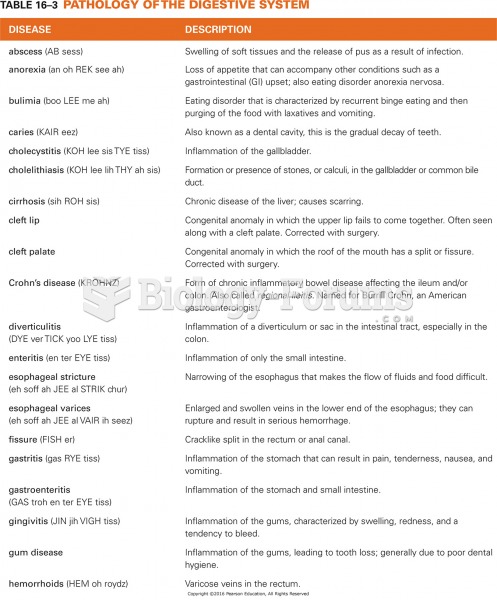|
|
|
Certain chemicals, after ingestion, can be converted by the body into cyanide. Most of these chemicals have been removed from the market, but some old nail polish remover, solvents, and plastics manufacturing solutions can contain these substances.
Most strokes are caused when blood clots move to a blood vessel in the brain and block blood flow to that area. Thrombolytic therapy can be used to dissolve the clot quickly. If given within 3 hours of the first stroke symptoms, this therapy can help limit stroke damage and disability.
Limit intake of red meat and dairy products made with whole milk. Choose skim milk, low-fat or fat-free dairy products. Limit fried food. Use healthy oils when cooking.
In 1864, the first barbiturate (barbituric acid) was synthesized.
Serum cholesterol testing in adults is recommended every 1 to 5 years. People with diabetes and a family history of high cholesterol should be tested even more frequently.
 Intradermal drug administration: (a) cross section of skin showing depth of needle insertion Source:
Intradermal drug administration: (a) cross section of skin showing depth of needle insertion Source:
 Absorption of a drug through cell membranes into the bloodstream (systemic circulation). The drug ...
Absorption of a drug through cell membranes into the bloodstream (systemic circulation). The drug ...





